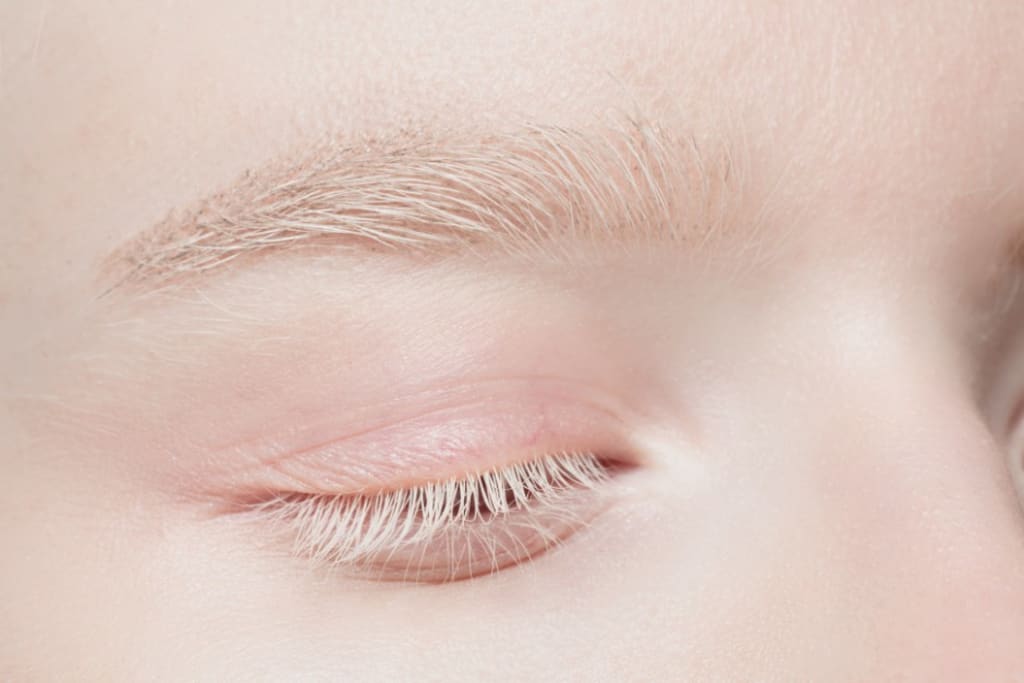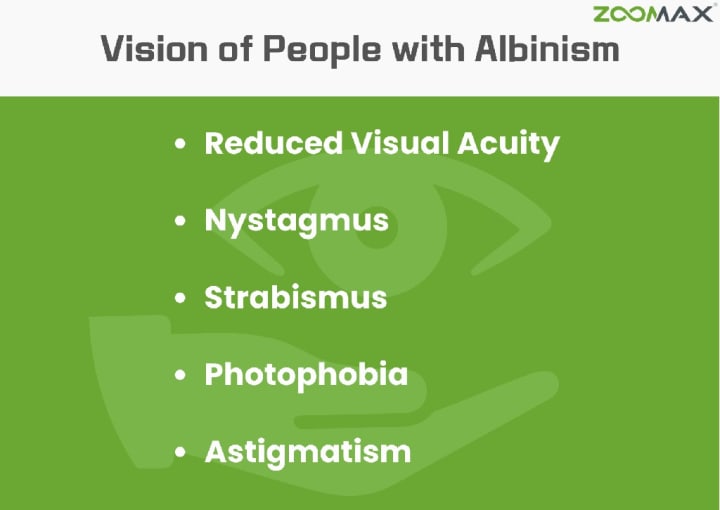Vision of People with Albinism
Vision of People with Albinism

Did you know that albinism impairs vision? The term “albinism” may conjure up images of fair complexion or light hair. However, if a person has ocular albinism, their eyes may appear and function differently, and they may need to wear special contacts or glasses. Also, that person’s vision will not be fully lost, and it will not deteriorate over time. In reality, as youngsters get older, their eyesight may improve. International Albinism Awareness Day serves as a painful reminder of the difficulties that people with albinism encounter, as well as the necessity of recognizing and supporting their personal experiences.
Albinism, a hereditary disorder defined by the absence or loss of melanin pigment, affects not just the skin and hair but also has a significant influence on an individual’s visual ability. To learn more about the vision of persons with albinism, consider the challenges they encounter, the possible influence on visual acuity, and the need of raising awareness and giving assistance.
According to a United Nations research titled “Legal Analysis on Albinism,” persons with albinism have several challenges connected to their visual health as a result of the underlying illness. The lack of melanin in their eyes interferes with the development and function of numerous ocular structures, resulting in a variety of vision abnormalities. While everyone’s experience with albinism is different, it’s critical to recognize the common visual symptoms of albinism they endure and the impact it has on their everyday life.
What’s The Vision Of People With Albinism?
The vision of people with albinism is specifically affected by the lack or reduction of melanin pigment in their eyes. Melanin deficiency affects multiple ocular structures, resulting in a variety of visual impairments and problems. Let’s take a closer look at the visual symptoms that people with albinism face and how they affect their daily life:
Reduced Visual Acuity
Reduced visual acuity is one of the most significant visual issues that people with albinism experience. The sharpness and clarity of vision are referred to as visual acuity. Individuals with albinism frequently fail to perceive fine details, small text, or distant objects due to a lack of melanin in the eye structures. Reading, interpreting facial emotions, and deciphering complicated patterns all become more difficult. Corrective lenses, such as glasses or contact lenses, are frequently used to enhance visual acuity, although they may not completely restore normal vision.
Nystagmus
Individuals with albinism are more likely to have nystagmus, which is characterized by involuntary eye movements. These quick, rhythmic motions of the eyes might be horizontal, vertical, or circular. Nystagmus can have a considerable impact on visual acuity, making it difficult to keep a sustained focus on objects. Continuous eye movement can cause blurry vision, which can interfere with daily tasks such as reading, writing, or following moving objects.
Strabismus
Strabismus, commonly known as misalignment of the eyes or "crossed" eyes, is more frequent in those with albinism. It happens when the eyes are not correctly aligned, with one eye seeing straight ahead and the other turning inward, outward, upward, or downward. Strabismus can impair depth perception and binocular vision, causing problems with eye synchronization. Strabismus patients may have double vision or trouble combining pictures from both eyes into a single, unified visual sense.
Photophobia
Individuals with albinism frequently develop photophobia, or increased sensitivity to light. Because of a lack of melanin in the iris and other eye components, the eyes are more sensitive to bright light. Individuals with albinism may squint, blink excessively, or seek shade when exposed to sunlight, glare, or intense interior lighting. Photophobia can have an influence on everyday activities by restricting outdoor participation or making it difficult to be in situations with bright lighting.
Astigmatism
Astigmatism is another visual problem that is frequently connected with albinism. It happens when the eye's cornea or lens has an uneven shape, resulting in blurry vision. Because of the structural anomalies produced by albinism, people with the disorder may have astigmatism. Astigmatism can impair both near and far vision, making it difficult to see well at various distances or angles.

Can Albinism Lead To 20/200 Vision?
Individuals with albinism may have vision as low as 20/200 due to a lack or loss of melanin pigment in their eyes. This degree of visual acuity relates to the capacity to perceive what a person with normal vision can see at 200 feet at a distance of 20 feet. It is essential to note, however, that not all people with albinism will have such significant vision loss. Individuals’ visual acuity can vary substantially, with some having superior eyesight. Regular eye exams are essential for monitoring and controlling albinism-related vision deficits.
While there is no treatment for albinism, several therapies can help control the condition’s consequences on eyesight and general health. These might include…
Learn more about Albinism: Vision of People with Albinism
About the Creator
Zoomax-Living with Low Vision
ZOOMAX is a high-tech low vision solution company focusing on the research and development of the high quality low vision aids.
Enjoyed the story? Support the Creator.
Subscribe for free to receive all their stories in your feed. You could also pledge your support or give them a one-off tip, letting them know you appreciate their work.






Comments
There are no comments for this story
Be the first to respond and start the conversation.